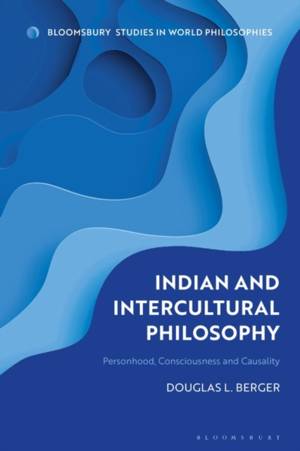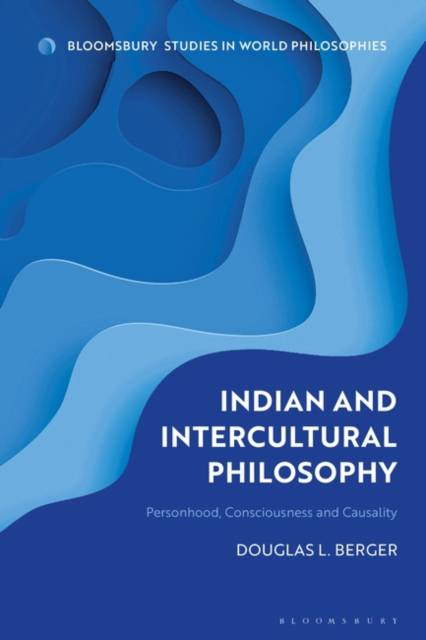
Bedankt voor het vertrouwen het afgelopen jaar! Om jou te bedanken bieden we GRATIS verzending (in België) aan op alles gedurende de hele maand januari.
- Afhalen na 1 uur in een winkel met voorraad
- In januari gratis thuislevering in België
- Ruim aanbod met 7 miljoen producten
Bedankt voor het vertrouwen het afgelopen jaar! Om jou te bedanken bieden we GRATIS verzending (in België) aan op alles gedurende de hele maand januari.
- Afhalen na 1 uur in een winkel met voorraad
- In januari gratis thuislevering in België
- Ruim aanbod met 7 miljoen producten
Zoeken
€ 67,95
+ 135 punten
Uitvoering
Omschrijving
For over twenty years Douglas Berger has advanced research and reflection on Indian philosophical traditions from both classical and cross-cultural perspectives. This volume reveals the extent of his contribution by bringing together his perspectives on these classical Indian philosophies and placing them in conversation with Confucian, Chinese Buddhist and medieval Indian Sufi traditions.
Delving into debates between Nyaya and Buddhist philosophers on consciousness and identity, the nature of Sankara's theory of the self, the precise character of Nagarjuna's idea of emptiness, and the relationship between awareness and embodiment in the broad spectrum of Indian thought, chapters exhibit Berger's unusually broad range of expertise. They connect Chinese Confucian and Buddhist texts with classical Indian theories of ethics and consciousness, contrast the ideas of seminal European thinkers like Nietzsche and Derrida from prevailing themes in Buddhism, and shed light on the spiritual and political dimensions of the Mughal prince Dara Shukoh's immersion into Vedantic thought.
Always approaching the arguments from an intercultural perspective, Berger shows how much relevance and resonance classical Indian thought has with ancient Confucian views of ethics, Chinese Buddhist depictions of consciousness and medieval Mughal conceptions of divinity. The result is a volume celebrating the rigor, vitality and intercultural resonance of India's rich philosophical heritage.
Delving into debates between Nyaya and Buddhist philosophers on consciousness and identity, the nature of Sankara's theory of the self, the precise character of Nagarjuna's idea of emptiness, and the relationship between awareness and embodiment in the broad spectrum of Indian thought, chapters exhibit Berger's unusually broad range of expertise. They connect Chinese Confucian and Buddhist texts with classical Indian theories of ethics and consciousness, contrast the ideas of seminal European thinkers like Nietzsche and Derrida from prevailing themes in Buddhism, and shed light on the spiritual and political dimensions of the Mughal prince Dara Shukoh's immersion into Vedantic thought.
Always approaching the arguments from an intercultural perspective, Berger shows how much relevance and resonance classical Indian thought has with ancient Confucian views of ethics, Chinese Buddhist depictions of consciousness and medieval Mughal conceptions of divinity. The result is a volume celebrating the rigor, vitality and intercultural resonance of India's rich philosophical heritage.
Specificaties
Betrokkenen
- Auteur(s):
- Uitgeverij:
Inhoud
- Aantal bladzijden:
- 240
- Taal:
- Engels
- Reeks:
Eigenschappen
- Productcode (EAN):
- 9781350253995
- Verschijningsdatum:
- 23/02/2023
- Uitvoering:
- Paperback
- Formaat:
- Trade paperback (VS)
- Afmetingen:
- 156 mm x 234 mm
- Gewicht:
- 340 g

Alleen bij Standaard Boekhandel
+ 135 punten op je klantenkaart van Standaard Boekhandel
Beoordelingen
We publiceren alleen reviews die voldoen aan de voorwaarden voor reviews. Bekijk onze voorwaarden voor reviews.









